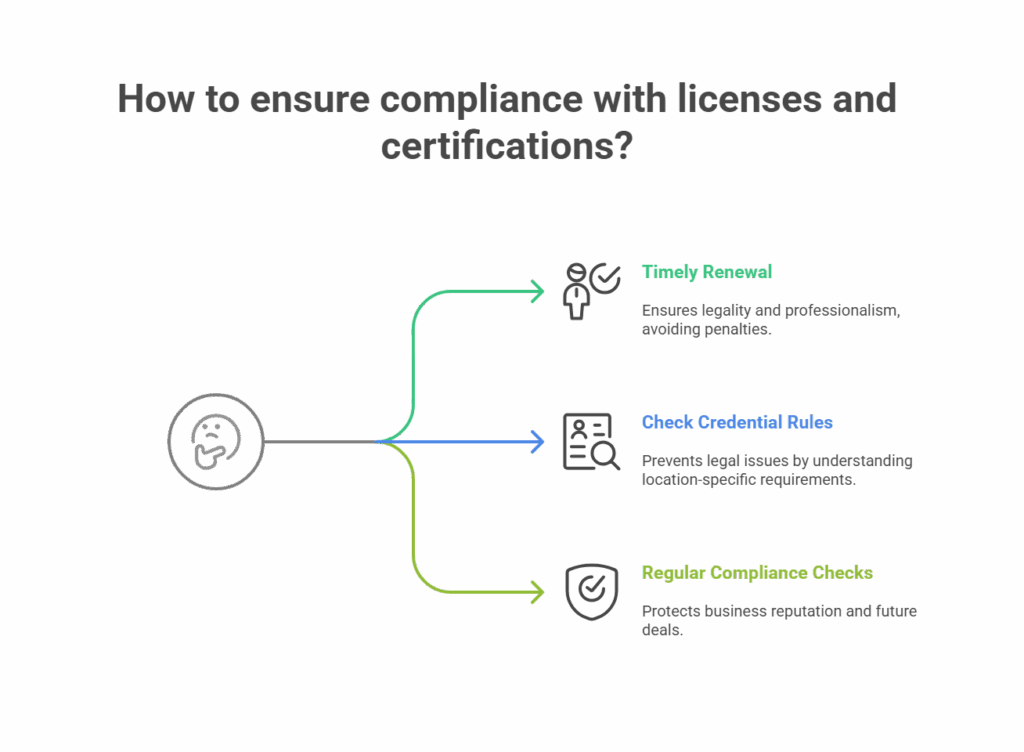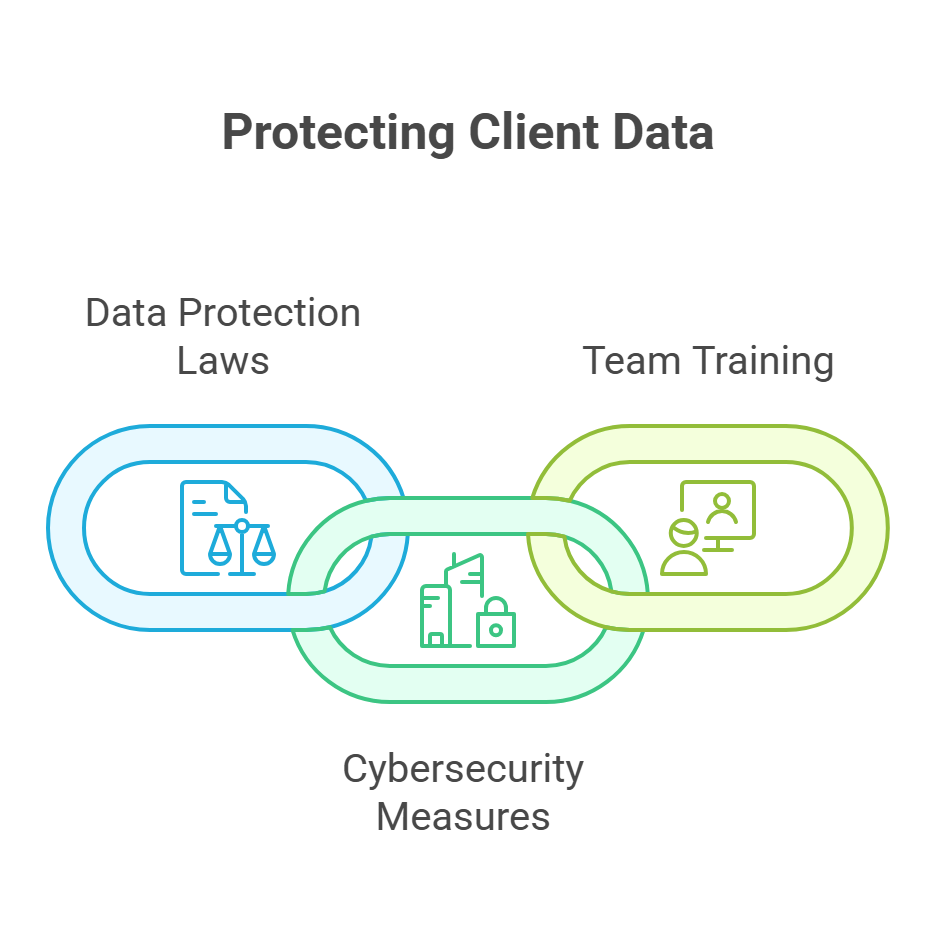Compliance in real estate isn't just a checklist task; it's the backbone of your business's credibility and safety. A well-structured Real Estate Compliance Checklist ensures all your operations stay within legal boundaries, protecting you from fines and costly lawsuits. Moreover, staying compliant builds trust with clients. They feel more secure knowing they're working with a professional who adheres to rules and regulations.
Using a Real Estate Compliance Checklist helps streamline your processes. When your dealings are transparent and properly documented, transaction closures happen more smoothly. It also serves as a safeguard for professionals, keeping their licenses secure and their operations in line with real estate industry standards. Falling short on compliance can have serious repercussions. That’s why every real estate professional should maintain a Real Estate Compliance Checklist to minimize risks and ensure long-term success.
This is where a comprehensive compliance checklist becomes invaluable. It acts as a proactive measure, ensuring you cover all bases and remain legally secure. This checklist isn't only about avoiding pitfalls; it's about strengthening your business. It helps you focus on what matters most: building relationships and closing deals with confidence.
The Comprehensive Real Estate Compliance Checklist
Real estate isn't just about buying and selling properties; it's a field bound by a mesh of legal and regulatory requirements. Getting every aspect right is crucial, and that's where our comprehensive Real Estate Compliance Checklist comes in. Designed for real estate agents, brokers, and property managers, this checklist takes you through all the key areas you need to focus on to stay compliant. By covering every base, you can ensure that property transactions are as smooth and secure as possible.
This Real Estate Compliance Checklist is split into essential compliance areas, each targeting different aspects of the transaction process. From ensuring correct documentation to adhering to fair housing laws, it helps you align your practices with the legal expectations. The goal? To make your transactions not just successful, but legally sound. Whether you're managing properties, closing deals, or bringing new listings to the market, this checklist guides you every step of the way.
By using this checklist regularly, you can mitigate risks, avoid pitfalls, and maintain your standing in the real estate profession. It ensures that nothing slips through the cracks, giving you peace of mind and the ability to focus on what you do best: connecting buyers and sellers and managing properties effectively.
1. Documentation Compliance
In real estate, having the right documents isn't just a formality; it's a fundamental part of the business. Proper documentation protects you legally and ensures your deals are ready to close without hitches. Let's dive into the critical aspects of documentation compliance:
- Agreements and Contracts: These are the backbone of any real estate transaction. Ensure every agreement is both complete and accurate. And don't forget the signatures! An unsigned contract amounts to no contract at all. A thorough review helps catch mistakes before they become problems.
- Disclosures: Legal disclosures play a key role in transparency. Whether it's information about the property condition or legal encumbrances, make sure disclosures are documented properly and shared in a timely manner. This step is crucial to building trust and avoiding disputes later.
- Title Deeds: Title deeds are proof of property ownership. They must be accurate and legitimate to prevent ownership challenges. Verify any necessary title insurance as an additional layer of protection for both you and your client.
Comprehensive documentation isn't only about compliance; it's about being deal-ready. When documents are in order, transactions close more efficiently, minimizing delays and misunderstandings. This proactive approach guards against potential legal battles and ensures you’re always prepared for the next step in any property transaction.
2. Licensing and Certification Checks

In the real estate world, your professional license is more than a piece of paper—it's your passport to doing business. Keeping your license and certifications updated is crucial. It ensures you can operate without any legal hiccups. Let's explore the key aspects you need to focus on for licensing and certification compliance:
- Keep Professional Licenses Up-to-Date: Regular renewals and updates to your professional licenses are essential. It’s not just about legality; it's about maintaining your reputation and credibility in the industry. Ensure renewal dates are marked and complied with promptly to avoid interruptions in your practice.
- Verify Credential Requirements: Beyond your license, each transaction might have specific credential requirements based on your jurisdiction. Always verify these before proceeding with deals. This step helps prevent unintended violations and ensures smooth transactions.
Consistent checks of your licenses and certifications are non-negotiable. Overlooking them can lead to operating unsanctioned—an error with serious consequences like legal sanctions or loss of professional standing. Keep your credentials in check not just to comply, but to excel in your operations. Being thorough today means avoiding issues tomorrow.
3. Fair Housing Laws
In real estate, fair housing laws are not just guidelines; they are mandates that ensure everyone has equal access to housing opportunities. Adhering to these regulations is crucial in preventing discrimination and fostering an environment of inclusivity. Here's what you need to focus on:
- Ensure Adherence to All Fair Housing Regulations: Complying with these laws means treating all clients fairly, regardless of race, color, religion, sex, disability, familial status, or national origin. Regularly review your practices to align with current regulations, which helps in preventing any form of discrimination within your operations.
- Educate Staff and Colleagues: It's not just about personal adherence; it's about building a culture of compliance. Organize training sessions and workshops to keep everyone informed about fair housing laws. This education promotes an inclusive environment and ensures everyone is on the same page regarding compliance.
Compliance in fair housing laws does more than keep you legal—it builds integrity and trust with your clients. They know they're in good hands with someone who values equal opportunity and fairness. By embedding these practices into your daily operations, you enhance client relationships and uphold the dignity of the real estate profession.
4. Anti-Money Laundering (AML) Measures
Money laundering isn't just a crime; it's a serious risk to the credibility and security of the real estate industry. Including strong Anti-Money Laundering (AML) practices in your Real Estate Compliance Checklist is essential to protect your business and uphold transactional integrity. Here’s what you need to address:
- Implement Procedures to Identify and Report Suspicious Transactions: Develop clear protocols for spotting unusual or suspicious activity within your transactions. This might include large or complex deals that don't add up or have atypical patterns. Reporting these promptly keeps your operations transparent and lawful.
- Stay Informed About the Latest AML Regulations: Regulations can change, and staying updated is essential. Regularly review the latest AML rules and ensure your processes align with them. This ongoing awareness helps you adapt quickly to new requirements and strengthens your defense against financial crime.
AML measures are non-negotiable because they play a crucial role in preventing financial crimes. By identifying and reporting suspicious transactions, you protect yourself and your clients from potentially illegal activities. This vigilance demonstrates your commitment to lawful conduct and enhances trust with all parties involved in real estate deals. Embedding AML practices not only keeps you compliant but also reinforces your business's reputation as a secure and reliable entity.
5. Data Privacy Compliance
In today's digital age, data privacy isn't just a legal requirement; it's a cornerstone of client trust in real estate. Handling sensitive client information demands strict adherence to data protection laws and a proactive approach to cybersecurity. Including these safeguards in your Real Estate Compliance Checklist ensures nothing critical is overlooked.
- Secure Client Data per Data Protection Laws: Familiarize yourself with laws like the GDPR or CCPA, depending on your region, and ensure your data handling practices comply. This includes how you collect, store, and share client information. Compliance with these laws isn't just about legality—it's about respecting client confidentiality.
- Implement Robust Cybersecurity Measures: Prevention is better than cure, especially with cyber threats. Set up strong cybersecurity protocols to guard against data breaches. This may include using encryption, firewalls, and ensuring regular system updates. Training your team on cybersecurity awareness is equally important to minimize risks.
Data privacy compliance is pivotal in maintaining both client trust and your legal standing. By protecting sensitive information, you reassure clients that their data is safe with you. This trust is essential for nurturing long-term relationships and strengthening your business reputation. When you prioritize privacy, you're not just complying with laws; you're building a secure and trusted foundation for your real estate practice.
6. Record-Keeping Practices
Effective record-keeping is the unsung hero of real estate compliance. Detailed records are not just about organization—they are your best defense in audits and legal matters. Let’s look at how robust record-keeping practices can safeguard your business:
- Maintain Detailed Records of Transactions and Correspondence: Every transaction, email, and agreement should be meticulously recorded. Clear and precise records help you track progress and provide a paper trail if questions arise. This documentation serves as evidence to support the integrity of your transactions.
- Utilize Digital Tools for Secure and Efficient Records Management: Embrace technology to maintain, organize, and secure your records. Digital record-keeping tools make it easy to store and retrieve information, while providing security features to protect sensitive data. These tools can automate archiving processes and ensure you keep everything in order.
Reliable records are invaluable not only for daily operations but also during audits or if you need to mount a legal defense. Thorough record-keeping provides clarity and accountability, helping you demonstrate compliance with ease. When your records are well-organized and secure, you minimize risks and show clients your commitment to professionalism and transparency.
Fuzen: Your Partner in Seamless Compliance Management
Managing compliance in real estate can be complex, but Fuzen gives you a powerful, easy-to-use Custom CRM Solution for Businesses. As a no-code platform, Fuzen is ideal for real estate professionals who want to streamline compliance management without the hassle of traditional software.
With Fuzen, you can build a custom CRM tailored to your real estate workflow. Track leads, automate compliance checkpoints, and securely store required documents—all in one centralized system.
Key features include:
- Real-time dashboards for full operational visibility
- Automated alerts to stay ahead of compliance deadlines
- Audit-ready reports that offer transparency and accuracy
- Pre-built CRM templates designed for real estate workflows
These tools help you stay organized, reduce manual work, and ensure you're always compliant—without missing a beat.
Fuzen is also highly cost-effective. There's no need for expensive developers or long-term contracts. You only pay for hosting, giving you full customization control and flexibility to scale as your business grows. Its no-code tools allow for easy custom development, ensuring your CRM fits your exact operational needs.
Choose Fuzen as your partner in smarter real estate compliance. Focus on helping clients find their dream homes, knowing your back office is secure, efficient, and fully compliant.
Conclusion
Real estate compliance can be daunting, but it doesn’t have to be. Take a moment to audit your current processes. Are they efficient and up-to-date? Identifying gaps is the first step to enhancing your workflows. This is where Fuzen comes into play, offering you the tools to adapt and automate your compliance tasks using a smart Real Estate Compliance Checklist.
By leveraging Fuzen, you transform how you manage your operations. Automating compliance not only provides peace of mind but also streamlines daily tasks. With the help of a well-structured Real Estate Compliance Checklist, it ensures that as agents, brokers, or managers, you're legally sound and always ready for any deal.
Embrace the opportunity to make compliance seamless and focus more on what matters—growing your business and supporting your clients with confidence and assurance.

Pushkar is a seasoned SaaS entrepreneur. A graduate from IIT Bombay, Pushkar has been building and scaling SaaS / micro SaaS ventures since early 2010s. When he witnesses the struggle of non technical micro SaaS entrepreneurs first hand, he decided to build Fuzen as a nocode solution to help these micro SaaS builders.



